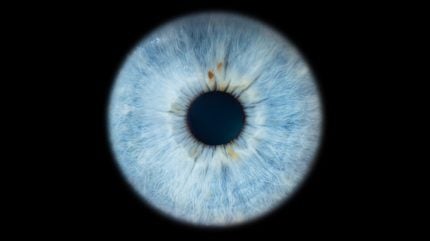
The US Food and Drug Administration (FDA) has approved Sandoz’s Enzeevu (aflibercept-abzv), the drugmaker’s biosimilar for wet age-related macular degeneration (AMD).
Available as a 2mg vial kit and pre-filled syringe, the biosimilar– which references Regeneron and Bayer’s Eylea (aflibercept) – is indicated to improve and maintain visual acuity in patients with the eye disease.

Discover B2B Marketing That Performs
Combine business intelligence and editorial excellence to reach engaged professionals across 36 leading media platforms.
Enzeevu joins Biocon Biologics’s Yesafili (aflibercept-jbvf) and Samsung Bioepis’ Opuviz (aflibercept-yszy) in the list of FDA-approved biosimilars to Eylea. Yesafili and Opuviz were both greenlit by the agency as the first biosimilars in May this year. They were both designated as interchangeable products.
The FDA has provisionally said Enzeevu would be interchangeable with Eylea as “it is currently subject to an unexpired exclusivity for the first interchangeable biosimilar products”, as per a 12 August press release.
A Sandoz spokesperson confirmed to Pharmaceutical Technology that its product does not yet have an interchangeable designation due to the still-pending exclusivity of other competitors.
Interchangeable biosimilars are eligible for a year of market exclusivity if they are the first biosimilar of a given product to receive interchangeable designation, as per the Biologics Price Competition and Innovation Act. It is possible that multiple interchangeable biosimilars could share a period of initial exclusivity if they are approved at the same time.

US Tariffs are shifting - will you react or anticipate?
Don’t let policy changes catch you off guard. Stay proactive with real-time data and expert analysis.
By GlobalDataHowever, how this exclusivity period is exercised was scrutinised when Boehringer Ingelheim, which produces the first interchangeable biosimilar for Humira (adalimumab) called Cyletzo, was in litigation with Pfizer, which also produces an interchangeable biosimilar.
The company has said that Enzeevu’s launch will be dependent on the outcome of pending or potential future related litigations, as well as any potential settlements, amongst other factors.
Biosimilars are not new to the wet AMD treatment space, with the first copycat to Genentech’s Lucentis (ranibizumab) hitting the market in 2021.
Sandoz strengthened its ophthalmology portfolio when it spent $170m to acquire Cimerli (ranibizumab-eqrn) – the first interchangeable biosimilar to Lucentis – from Coherus in March this year. Sandoz stated Enzeevu will be a “key biosimilar value driver” as the company expands its ophthalmology presence.
Sandoz, which completed its spin-off from Novartis late last year, lifted its 2024 sales guidance earlier this week while reporting Q2 financial results. Propelled by strong sales of the Humira-copycat Hyrimoz, the company notched total sales of $2.6bn for the second quarter.
Wet AMD, also known as neovascular AMD, is a leading cause of vision loss, affecting around 1.5 million people aged 40 years and older in the US. Amongst AMD cases, the wet subtype is responsible for 90% of severe vision losses.
Similar to Eylea, the biosimilars work by inhibiting vascular endothelial growth factor (VEGF), which prevents abnormal blood vessel growth.
Regeneron’s Eylea currently dominates the ophthalmology market, netting $5.89bn in sales last year. However, product revenues were down by 6.3% from the year before due to increased competition from Roche’s wet AMD drug Vabysmo (faricimab) and others.
Regeneron has also been locked in various court battles with other companies over alleged patent infringements with their aflibercept biosimilars. Samsung Bioepis’ Opuviz received a preliminary injunction, whilst Biocon was hit with a permanent injunction.
Regeneron won a case against Viatris’s proposed biosimilar in December 2023, citing a patent that protects its drug until 2027.
Along with biosimilar introduction, Eylea will also face competition from Vabysmo. Vabysmo reached blockbuster status in only its second year on the market, notching $2.66bn in global sales last year. The biologic is predicted to see revenues of $8.5bn by 2030, according to GlobalData’s Pharma Intelligence Center.
GlobalData is the parent company of Pharmaceutical Technology.
Update: This article was updated on 13 August to include comment from a Sandoz spokesperson. The seventh paragraph was also amended to reflect this.




